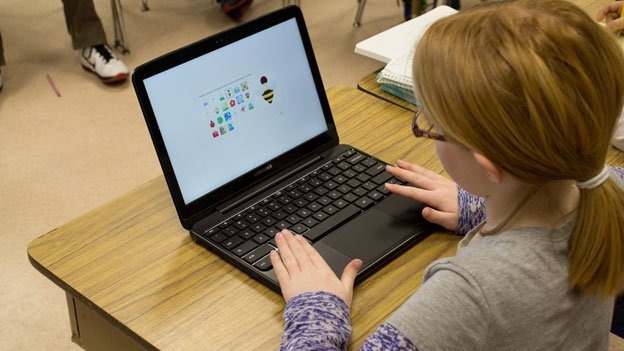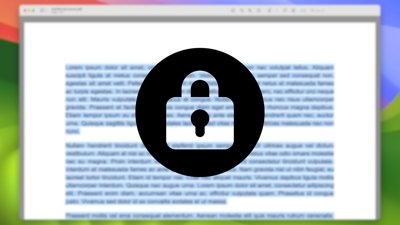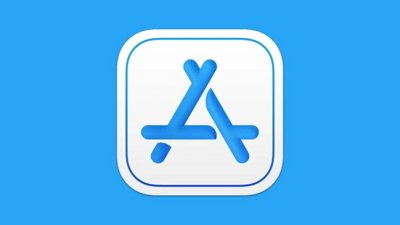Google addresses EdTech data collection concerns but leaves questions unanswered
After requesting details on Google's data collection policies in relation to its education technology program, Sen. Al Franken on Tuesday published the company's official point-by-point response, saying the letter was thorough but ultimately incomplete.
In January, Franken sent a letter to Google requesting clarification on what, if anything, the company does with user data collected from students using Chromebooks, Google Apps for Education (GAFE) and other Internet services.
As Google derives a large majority of its revenues from targeted online ads, there is concern that GAFE and other services provided in the classroom collect personal student information without the consent of administrators or parents. The Electronic Frontier Foundation accused the Internet search giant of taking part in such unsavory activities in a complaint with the U.S. Federal Trade Commission last year.
Google's response (PDF link), penned by VP of Public Policy and Government Relations Susan Molinari, addressed Franken's questions with detail on GAFE's core services, as well as accompanying services like YouTube and Blogger. Molinari said Google does indeed collect user information generated by students, but has never used GAFE data to inform or display targeted online ads.
"Personal information collected in GAFE core services is used solely to provide those services," Molinari said. "Schools are responsible for compliance with the Children's Online Privacy Protection Act of 1998, including obtaining parental consent for collection of students' personal information in GAFE core services. School administrators choose which, if any, additional Google services outside of the GAFE core services to allow their students to access. Many of these non-ÂGAFE services, such as Search, Earth, Maps and YouTube, have functions which schools find educationally relevant and valuable."
In some cases — or by default for Chromebooks — usage information is aggregated as anonymized data for product improvement purposes.
Molinari's answers were less clear in respect to Chrome Sync, a feature that collects and stores "additional information" from Chromebooks or through the Chrome browser to let students move seamlessly from one machine to another. Browser settings like browsing history, saved apps, extensions, bookmarks and passwords are saved to a student's Google Account, though any data also associated with a student's GAFE account is not applied to targeted ads, Molinari said. Further, users can restrict Google from seeing stored information by setting a Sync passphrase. Chromebooks used in schools have Sync switched on by default.
"Google's response to my questioning was thorough, and I appreciate its engagement on this topic. But I'm still concerned about what exactly Google does with the information it collects and processes from students who are browsing outside websites— like YouTube— while logged in to Google's education services," Sen. Franken said. "I plan to continue working with Google to clarify some of its policies, because it's important for the privacy of our students."
Franken asked if it was possible to make GAFE data collection a strictly opt-in feature, but Molinari skirted the question. She said administrators and single users have the option to restrict access to specific services if they so choose, adding that schools must first obtain parental consent to Google's data collection practices and any additional services outside of GAFE policy purview.
The kerfuffle over student privacy comes amid a struggle for control of the education market. Google's inexpensive Chrome-based products pose a serious threat to Apple's efforts, which have evolved beyond Mac to focus on iOS and iPad. While some institutions have found success with Apple's secure ecosystem and tailored software suite, others opt for cheaper hardware powered by a comparatively open operating system.
Apple plans to introduce an all-new Classroom app in the upcoming iOS 9.3 update, promising shared iPad features like instant content access, device tracking, course building software and more.
 Mikey Campbell
Mikey Campbell













 Bon Adamson
Bon Adamson
 Andrew Orr
Andrew Orr
 Amber Neely
Amber Neely
 William Gallagher and Mike Wuerthele
William Gallagher and Mike Wuerthele
 Malcolm Owen
Malcolm Owen

 Wesley Hilliard
Wesley Hilliard
 Christine McKee
Christine McKee









7 Comments
Thorough but incomplete???
How can you be thorough and incomplete, they're not thorough at all; it's the usual obfuscation for the G-men (they're like the men in black except not cool at all ;-)..
{{Checks watch}}
Mmmm. No Gatorguy yet. Hope he's not ill or something…